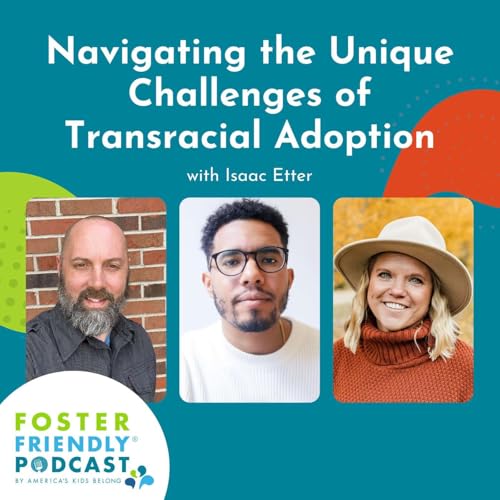
Navigating the Unique Challenges of Transracial Adoption with Isaac Etter
Failed to add items
Add to basket failed.
Add to Wish List failed.
Remove from Wish List failed.
Follow podcast failed
Unfollow podcast failed
-
Narrated by:
-
By:
About this listen
In this episode of the Foster Friendly Podcast, hosts Courtney and Travis engage in a deep conversation with Isaac Etter, a transracial adoptee and social entrepreneur. They explore the complexities of adoption, particularly transracial adoption, and the grief that often accompanies it. Isaac shares his personal journey, highlighting the importance of open conversations about race and identity within adoptive families. The discussion also touches on cultural differences, code switching, and the concept of ghost kingdoms, emphasizing the need for unconditional love and understanding in the adoption process.
Checkout Isaac's website with helpful parenting tips, tools, and resources:
https://www.parentingdifferent.com/
Takeaways
- Isaac was adopted at age two and faced challenges in understanding his identity.
- Adoption is complex and often involves grief and loss.
- Conversations about race should be normalized in transracial families.
- Grief in adoption can manifest during significant life transitions.
- Cultural differences play a crucial role in shaping identity for adoptees.
- Code switching is a common experience for transracial adoptees.
- Ghost kingdoms represent unexpressed curiosity about birth families.
- Unconditional love is essential for adopted youth.
- Adoptees often need compassion and grace as they navigate their identities.
- Open dialogues about race can help adoptees feel secure in their identities.


